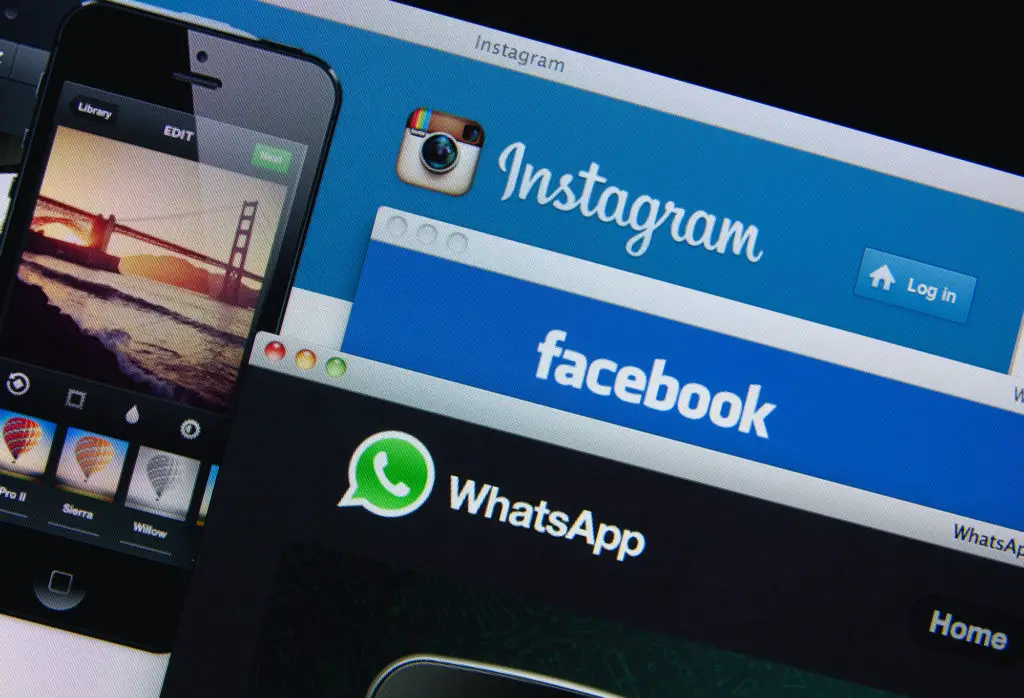Don't want others to see your call records on your phone bill? You're not alone. Unfortunately, your monthly mobile bill openly lists calls and texts you send during the month. But, fortunately, hiding calls on your phone bill is possible.
To keep your call records confidential, use messenger apps with VoIP technology, activate caller ID blocking, or even use a burner phone. These options allow you to make calls and texts without leaving a record on your phone bill, preserving your privacy.
So, what's the deal with this article? We're going to spill the beans on three sneaky ways to hide those numbers on your phone bill, plus give you a step-by-step rundown on using our top pick for secure messaging apps to keep your call records under wraps.

What Information Is Included On A Phone Bill?
A phone bill is a document that provides a detailed account of a customer's calls and services over a specific period, usually a month. Phone bills can differ depending on the service provider and the phone plan that the customer has. A typical phone bill, on the other hand, will usually include the following:
Account Information: Information about the customer, such as name, billing address, and account number.
Call charges: Details on the calls that were made and received, including the date, time, and duration of the call, as well as the number called or received.
Text Messaging Charges: Details on the number of standard SMS texts sent and received, and any fees associated with sending or receiving text messages.
Data Usage: Amount of data used for internet services.
Fees and Charges: This section shows the charges for all services used during the billing period, including the cost of calls, data usage, and any additional fees for premium services.
All your phone calls are listed on your monthly phone bill, but what if you want to keep some private? There are three common ways to hide specific call records on your bill, whether for privacy or to conceal sensitive information.
Three Common Ways to Hide Numbers On Phone Bills
- Use Messenger Apps because they encrypt your call and text records
Messaging apps like WhatsApp, Facebook Messenger, and Signal do not use the cellular network. Instead, they use Voice over Internet Protocol (VoIP) to make calls and send texts, which encrypts the call and text records. This means that instead of appearing as regular phone calls on your bill, they appear as data usage, keeping your call records private.
- Use A Secondary Phone or Burner phone
Another option to keep your call records private is using a secondary or burner phone. This way, any calls made or received on the secondary phone won't appear on your primary phone bill.
- Activate Blocking Caller ID
When caller ID is blocked, "Private number" appears on the bill instead of the actual number. For outgoing calls, the vertical service code *67 conceals your phone number from your recipient's phone bill on a call-by-call basis. To remove incoming phone numbers from your bill, you must work with those who call you. They must dial *67 each time they dial your number to block caller ID.
Remember:
Disabling caller ID does not hide the number from your phone company.
Recommendation: Use the Signal App
Does the Signal App show up on your phone bill? No, it does not.
The Signal app is a safe and secure messenger that is end-to-end encrypted, hiding your calls and text messages. Law enforcement, the phone company, and the Signal company cannot see your content. Only a small amount of metadata is available.
Signal focuses on user privacy, ensuring the recipient is the only person who can get your messages.
Remember:
You and your recipient must both communicate through the app for your messages and calls to be private. We recommend that you invite the recipient to download the app.
Do not use Signal as your smartphone's default SMS handler.
How to get Signal Messenger and Set It Up?
One of the things we love about Signal is that it is easy to install and use. If you're ready, do the following:
Setting Up Signal on iOS
Download Signal from the App Store on your device.
Sign up on the app with your phone number. If you're using iOS, you'll find a screen showing the "Privacy policies." Tap "Continue." You'll also get a request to "Enable Permissions" to access your contacts & notifications.
Click "Allow" to enable the permissions.
Afterward, a signup screen will appear where you'll enter your "Country," "Phone number," and then tap "Next."
It's possible to use a burner phone number. But if you want your contacts to locate you on the app, use the actual number.
Signal will then send a code to your number. Once you get the code, enter it into the space provided. Then choose your username and add your profile image.
Tap "Save," and that's it.
Setting up Signal for Android
Download Signal from the Play Store on your Android device.
Launch Signal.
A pop-up message asking for access to your phone calls, contacts, storage, etc., will appear. Once it does, tap "Continue."
Then accept the permission prompts as they appear to move to the "signup screen."
Enter your phone number on the signup screen.
Then select "Register" to receive the verification code.
Input the code as it appeared to go over to the next page.
Select a username and add a profile image.
Then tap "Save," and that's it.
Other Questions You Might Have
Can you delete calls from your phone bill?
It's not possible to delete calls from your phone bill. Even if you delete your call history or text messages from your mobile device, it doesn't affect your mobile provider's records. Your mobile carrier keeps call logs, which are outside your control.
You can try discussing your situation with your mobile provider. They may have a solution. They may be able to exclude detailed billing where Call Detail Records (CDR) are not included on the bill.
It's standard practice for legacy communication providers to comply with laws or regulations to keep a completely accurate CDR. The carrier may be unable to remove individual calls or texts from your phone bill.
This means there is no way for you to delete your call history permanently from your service provider. Telecom companies must keep records of calls for a certain period, so they can't delete them UNTIL that period lapses. A breach of this is sufficient to cause a cancellation of their license.
The question then should be, how long can your service provider keep your phone records on their server before they delete them; the answer to this will depend on the License Agreement each service provider has been issued by the government.
Warning:
We've read that some people try to edit the electronic version of their bill. Don't do this. Remember that your bill's PDF or website version is not connected to the phone company's logs. Faking your account records can only worsen an existing problem.
How to hide incoming/outgoing numbers on the bill?
The vertical service code *67 hides your number from your recipient's phone bill for your outgoing calls on a call-by-call basis. Removing incoming phone numbers from your bill requires coordination with people calling you. They must add *67 each time they dial your number to block caller ID.
Even though, *67 makes your phone number private to the person you are calling, it will still show up on the bill for the phone making the call (Unfortunately, when you make *67 code calls, your phone company will show the call on your bill.)
Moreover, activating caller ID blocking each time can get painful. You may change your phone setting to make all your outbound calls private. Everyone will see "private number" instead of your telephone number.
Your mobile provider's customer service center may be able to add a caller ID block for the calls you make. But remember, they can't do it for incoming calls. You can only ask the other party to take the same measures.
Another way to hide incoming/outgoing phone numbers on the bill is to use calling apps that serve as intermediaries for calls. But remember that most calling apps, including a burner app, are not always secure. Before choosing, do your research. Find out if the service keeps its own call and message logs.
Most VoIP services, like Skype, RingCentral, Dialpad, etc., keep their own CDRs. While they're not on your primary phone bill, these logs are out of your control.
On a cell phone bill, calls aren't the only thing to worry about.

How do I hide messages on my phone bill?
To hide standard SMS text messages on your phone bill, discontinue using them immediately. Like call logs, mobile service providers are required by FCC document Title 47 Section 42.6 to keep accurate records. It's not possible to hide short message service texts.
You may have heard that using the messenger app is the safest way to hide your messages. Unfortunately, these apps have a hidden agenda. They sell or leak your metadata (e.g., location, time of messages, count of messages, sending and receiving numbers, etc.) to advertisers.
Big names like Facebook, iMessage, WeChat, Snapchat, WhatsApp, etc., continually harvest metadata from every conversation. Moreover, the cell providers Verizon, T-Mobile, AT&T, Google, and the like, access your standard SMS & MMS messages without your knowledge.
I wrote a whole article about the dangers of using MMS. Please, for the love of all things sacred: Stop using messaging designed decades ago!
So, the first thing to do is to stop using these standard messaging apps for your communications. Instead, use secured messengers designed for private text, especially those with open-source licenses that are publicly audited.
There are plenty of end-to-end encrypted, open-source messaging platforms. Take a look at the following:
Use any of these apps to keep your messages private, secure**, and away from your phone bill**.
Does a texting app show up on the phone bill?
Sending text messages with an app on your phone means using your phone company's data services. Messages and calls within the app won't appear on your bill. Instead, you'll see the device that used the mobile service data and the amount consumed data.
The record of the messages won't show unless the apps have an SMS fallback.
If your chosen messenger has this feature, it will send your texts through old 1990s SMS or MMS channels if both the sender and receiver are not using the same app. Instead of using the internet to transport your message privately, you're sending it through your mobile provider's unencrypted and logged service.
The earlier messengers listed above do not have or can be set not to use SMS fallback.
Our favorite messenger app is Signal. Aside from being the easiest to switch to, Signal's philosophy centers around knowing as little about its users as possible.
Remember that Signal can also send SMS to a recipient who doesn't have a Signal account yet. While the app makes it evident that your text message is insecure in this scenario, disregarding the status allows texts to show on your phone bill.
It's best to encourage all your contacts to switch to Signal or use a separate app to handle insecure SMS messages.

Do Messenger calls show on your phone bill?
No, Messenger and other texting apps don't appear on your phone bill. The cost of using any app that uses data or sends messages is built into the monthly plan for your wireless carrier. This includes Facebook Messenger, WhatsApp, TextNow, and iMessage.
If you use one of the messenger or texting applications, the call is made over the internet and not over your phone's cellular network. This means that it won't show up on your phone bill. Instead, they appear as regular data usage. So if you're worried about someone seeing your call history, don't be.
You see, not all phone calls show up on the phone bill, only the ones you make over the cellular network. Simply put, calling people using texting apps is another way to call someone without it appearing on the phone bill. How is this possible?
Well, I am glad that you asked.
The answer is that messenger calls (calls made via texting apps) are made using voice over IP, or VoIP. This is a term for any technology that sends sound information online rather than through your regular phone line. Your calls are sent directly between two computers, not to your cell tower, and then to another computer. So, there's no way for them to show up on your phone bill.
If you need more reasons, here's another one. Since messenger calls are carried over your internet connection, they use data instead of minutes. So, again, there's no way for them to show up on your phone bill.
Another privacy question may be, "Do WhatsApp Numbers Appear On Your Phone Bill?" The answer is the same, no. Your phone bill won't show WhatsApp calls or any other VoIP calls.

Do Instagram calls show on your phone bill?
Just like calls made over messenger and other texting apps, calls made over Instagram don't appear on your phone bill.
What happens when you place an Instagram call? The app directly connects the two phones without the cell tower's involvement. Instagram's calls are sent through an internet connection, not over your phone company's network.
Because of VoIP and peer-to-peer technology and not cellular networks, it's impossible for Instagram calls to show up on your phone bill.
One might also ask, "What about google voice call?" Do google voice calls show on the phone bill? No, they will not show on your phone records.
Here's how it works: When somebody calls your Google Voice number, Google Voice will intelligently try to reach you by calling your Google number via VoIP, using whatever data service is connected (Wi-Fi preferred than LTE). If it cannot connect over these services or if there's no signal, phone cellular carriers are used instead!
So, as long as you have a Wi-Fi signal or mobile data, it won't eat up your calling minutes and, therefore, won't be listed on your phone bill.
At the end of the day, people are more concerned about the privacy of their calls rather than how much data it costs. This is why carriers have built texting apps that allow you to make phone calls over the internet. It's cheaper for them (and maybe for you, too) and allows people to make voice calls without worrying about them appearing on their phone bills.